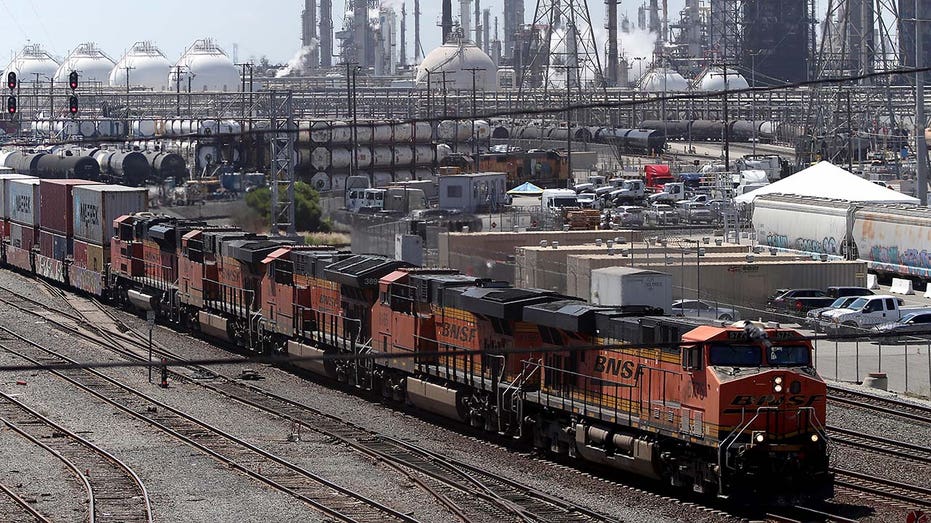The International Brotherhood of Boilermakers (IBB) announced Monday its members voted against ratifying a tentative agreement with the major freight railroads, making IBB the third labor group to turn down the deal brokered by the Biden administration and upping the chances of a nationwide strike.

The IBB said in a statement that it has now entered a “cooling off” period and plans to continue to negotiate further with the National Carriers’ Conference Committee (NCCC), which represents the nation’s largest railroads, including BNSF, CSX, Norfolk Southern and Union Pacific.
IBB joins the Brotherhood of Railroad Signalmen (BRS) and the Brotherhood of Maintenance of Way Employees Division of the International Brotherhood of Teamsters (BMWED) in rejecting the proposed contracts providing rail workers a 24% wage increase during the five-year period from 2020 through 2024.

| Ticker | Security | Last | Change | Change % |
|---|---|---|---|---|
| UNP | UNION PACIFIC CORP. | 216.95 | -0.55 | -0.25% |
| CSX | CSX CORP. | 31.80 | -0.14 | -0.44% |
| NSC | NORFOLK SOUTHERN CORP. | 251.68 | +0.77 | +0.31% |
Union rail workers opposed to the tentative agreement negotiated by President Biden’s Presidential Emergency Board (PEB) are unhappy that the deal did not do more to address quality of life issues, particularly a lack of sick time and working on skeleton crews.
Multiple union members told reporters they are frustrated that their union representatives signed off on the PEB’s recommendations back in September, arguing the agreement did not do enough to improve working conditions.

All twelve unions involved in the negotiations must agree to ratify their new contracts, or a strike could take place, devastating supply chains and the economy at large, costing an estimated $2 billion a day. Congress is expected to get involved if a work stoppage is triggered, but multiple unions have agreed to continue negotiating into early December.
So far, seven unions have voted to ratify their contracts, and now three have voted against it. The remaining two unions’ ratification vote counts are slated to be announced next week.

